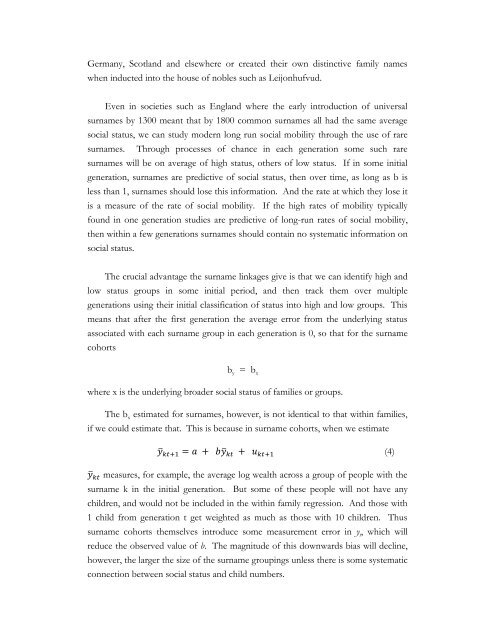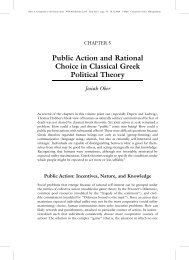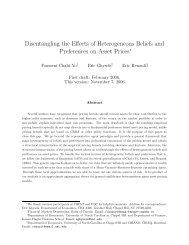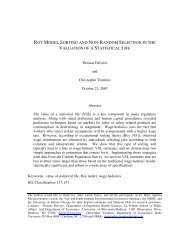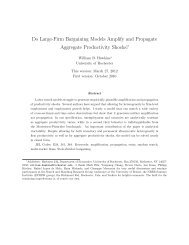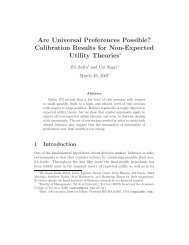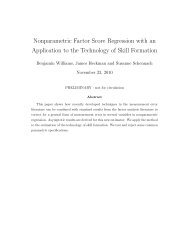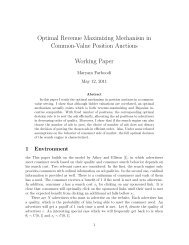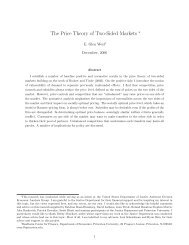Surnames and a Theory of Social Mobility - University of Chicago ...
Surnames and a Theory of Social Mobility - University of Chicago ...
Surnames and a Theory of Social Mobility - University of Chicago ...
You also want an ePaper? Increase the reach of your titles
YUMPU automatically turns print PDFs into web optimized ePapers that Google loves.
Germany, Scotl<strong>and</strong> <strong>and</strong> elsewhere or created their own distinctive family names<br />
when inducted into the house <strong>of</strong> nobles such as Leijonhufvud.<br />
Even in societies such as Engl<strong>and</strong> where the early introduction <strong>of</strong> universal<br />
surnames by 1300 meant that by 1800 common surnames all had the same average<br />
social status, we can study modern long run social mobility through the use <strong>of</strong> rare<br />
surnames. Through processes <strong>of</strong> chance in each generation some such rare<br />
surnames will be on average <strong>of</strong> high status, others <strong>of</strong> low status. If in some initial<br />
generation, surnames are predictive <strong>of</strong> social status, then over time, as long as b is<br />
less than 1, surnames should lose this information. And the rate at which they lose it<br />
is a measure <strong>of</strong> the rate <strong>of</strong> social mobility. If the high rates <strong>of</strong> mobility typically<br />
found in one generation studies are predictive <strong>of</strong> long-run rates <strong>of</strong> social mobility,<br />
then within a few generations surnames should contain no systematic information on<br />
social status.<br />
The crucial advantage the surname linkages give is that we can identify high <strong>and</strong><br />
low status groups in some initial period, <strong>and</strong> then track them over multiple<br />
generations using their initial classification <strong>of</strong> status into high <strong>and</strong> low groups. This<br />
means that after the first generation the average error from the underlying status<br />
associated with each surname group in each generation is 0, so that for the surname<br />
cohorts<br />
b y = b x<br />
where x is the underlying broader social status <strong>of</strong> families or groups.<br />
The b x estimated for surnames, however, is not identical to that within families,<br />
if we could estimate that. This is because in surname cohorts, when we estimate<br />
̅ ̅ (4)<br />
̅ measures, for example, the average log wealth across a group <strong>of</strong> people with the<br />
surname k in the initial generation. But some <strong>of</strong> these people will not have any<br />
children, <strong>and</strong> would not be included in the within family regression. And those with<br />
1 child from generation t get weighted as much as those with 10 children. Thus<br />
surname cohorts themselves introduce some measurement error in y t , which will<br />
reduce the observed value <strong>of</strong> b. The magnitude <strong>of</strong> this downwards bias will decline,<br />
however, the larger the size <strong>of</strong> the surname groupings unless there is some systematic<br />
connection between social status <strong>and</strong> child numbers.


